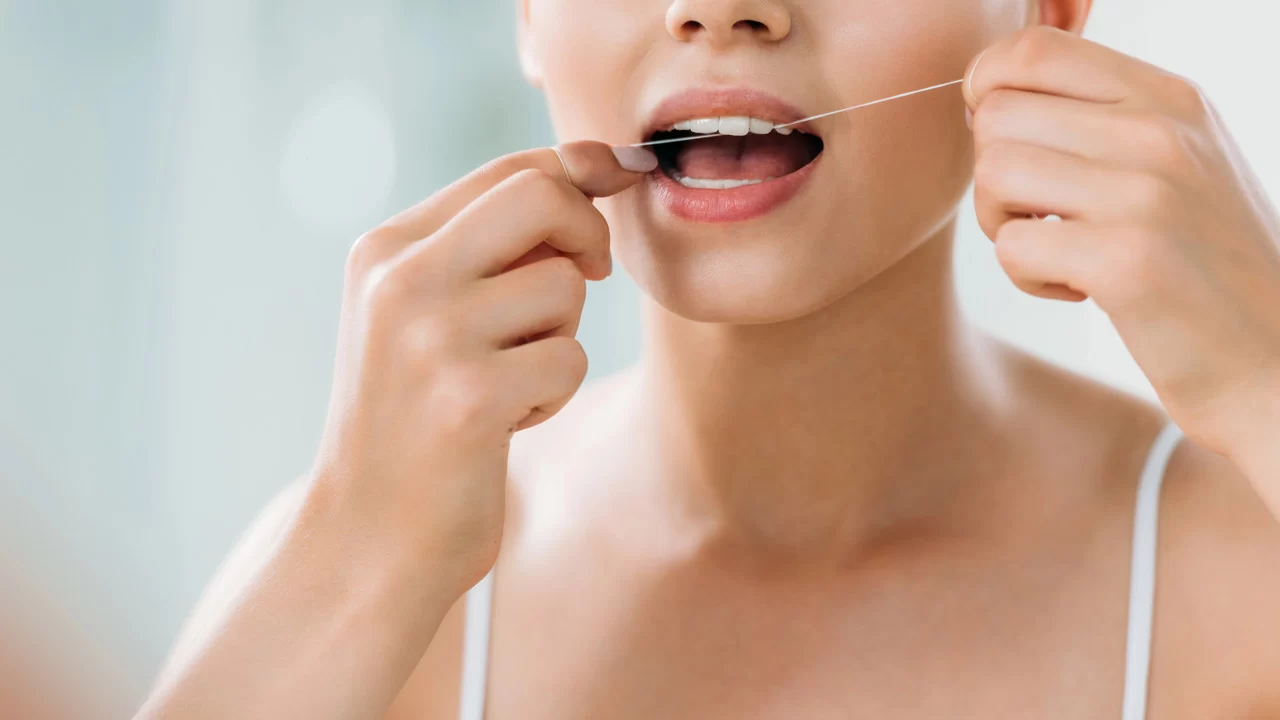
How to Properly Floss Around Dental Implants – Essential Tips for Implant Care
- 1. Why Flossing Around Dental Implants is Essential
- 2. How to Properly Floss Around Dental Implants
- 3. The Best Tools for Flossing Around Dental Implants
- 4. Common Mistakes to Avoid When Flossing Dental Implants
- 5. Tips for Maintaining Your Dental Implants
- 6. Recommended Dental Products for Implant Care
1. Why Flossing Around Dental Implants is Essential
When it comes to dental implants, proper care is key to ensuring they last a lifetime. While brushing your teeth is important, flossing is just as essential, especially around implants. Flossing helps remove food particles, plaque, and bacteria from areas that brushing alone can't reach. Without proper flossing, these particles can build up, leading to gum disease, implant failure, or even bone loss around the implant.
Dental implants may be sturdy and durable, but they require a good care routine to stay healthy. Failing to floss around your implants can result in peri-implantitis, an infection of the gums that can damage the bone and even lead to implant loss. Flossing around dental implants is a simple yet vital practice that ensures your implants function properly for years to come.
2. How to Properly Floss Around Dental Implants
Flossing dental implants may seem intimidating at first, but with the right technique, it's easy to incorporate into your daily routine. Follow these steps to floss around your implants effectively:
- Choose the right floss: Use a soft, waxed floss or a floss threader for implants. Regular floss can be too thin and may not effectively clean around the implant area.
- Wrap the floss carefully: Gently wrap the floss around the base of your implant and gently slide it between the gum and the implant. Be careful not to snap the floss into the gums, as this can cause irritation.
- Move in a back-and-forth motion: Move the floss in a gentle back-and-forth motion, cleaning the area around the implant. Be sure to clean both sides of the implant, reaching as far down as possible without damaging the gums.
- Use a C-shape technique: Form a "C" shape with the floss around the implant post. This will help you clean the gum line more effectively, ensuring that no plaque or debris is left behind.
- Rinse after flossing: After flossing, rinse your mouth with an antimicrobial mouthwash to further reduce plaque and bacteria in the area.
3. The Best Tools for Flossing Around Dental Implants
Flossing around dental implants requires the right tools to ensure you're cleaning effectively without damaging the implant or gums. Here are some of the best tools to help you maintain your implants:
- Waxed Dental Floss: Waxed floss is ideal for dental implants because it's strong yet gentle on the gums. The wax coating makes it easier to slide between tight spaces without causing irritation.
- Floss Threader: A floss threader helps guide the floss around the implant, especially if the gap is small. It's perfect for cleaning around difficult-to-reach areas.
- Interdental Brushes: These small brushes can be used to clean between your implants and other teeth. They are effective in removing debris and plaque buildup from the gum line.
- Soft Picks: Soft picks are great for cleaning between teeth and around implants. They are gentle on gums and can be used to remove food particles without damaging the tissue.
4. Common Mistakes to Avoid When Flossing Dental Implants
While flossing around dental implants is essential, it's easy to make mistakes that can hinder your oral health. Here are some common errors to watch out for:
- Using regular floss: Regular, non-waxed floss can fray and break easily, making it ineffective for implant care. Always use floss designed for implants.
- Snapping the floss: Snapping the floss into place can cause gum irritation and even damage the implant. Always be gentle when flossing.
- Skipping flossing: Some people assume that because implants are artificial teeth, they don't need to be flossed. However, neglecting flossing can lead to plaque buildup and infections.
- Flossing too aggressively: Flossing too aggressively can harm the gums or the implant itself. Always floss gently to avoid causing injury.
5. Tips for Maintaining Your Dental Implants
In addition to flossing, maintaining your dental implants requires a complete oral care routine. Here are a few essential tips to keep your implants in optimal condition:
- Brush your implants twice a day: Use a soft-bristled toothbrush and fluoride toothpaste to gently brush your implants and the surrounding gums. Avoid using hard bristles, as this can scratch the implant surface.
- Rinse with mouthwash: An antimicrobial mouthwash can help reduce plaque and bacteria around your implants.
- Schedule regular check-ups: Visit your dentist every 6 months to monitor the health of your implants and ensure everything is in good condition.
- Avoid hard foods: While dental implants are durable, eating hard foods can still damage them. Be mindful of foods like hard candy, nuts, or ice that may cause unnecessary stress on the implants.
6. Recommended Dental Products for Implant Care
Maintaining the health of your dental implants requires high-quality oral care products. Here are some recommended products designed for those with implants:
- Implant-specific floss: Invest in floss made for implants, such as waxed or PTFE (polytetrafluoroethylene) floss, to ensure optimal cleaning.
- Interdental brushes: Use small, flexible interdental brushes to clean hard-to-reach areas around implants.
- Non-alcoholic mouthwash: Choose a mouthwash that is alcohol-free to avoid drying out the gums around your implants.
If you're looking for reliable products to help care for your implants, Dentistry Toothtruth offers a wide selection of dental care products specifically designed for implant maintenance. Explore our products and keep your implants healthy and clean!







 Integrated Dental4.0 (189 review)
Integrated Dental4.0 (189 review) Dr. Anna Morrison5.0 (3 review)
Dr. Anna Morrison5.0 (3 review) Malinowski & Sefcik5.0 (8 review)
Malinowski & Sefcik5.0 (8 review) Dental365 - Bellmore4.0 (318 review)
Dental365 - Bellmore4.0 (318 review) Day and Night Dental5.0 (68 review)
Day and Night Dental5.0 (68 review) Dr. Kwon Pediatric Dentistry Sedation Center4.0 (133 review)
Dr. Kwon Pediatric Dentistry Sedation Center4.0 (133 review) The Importance of Oral Health Education During Pregnancy for a Healthy Pregnancy
The Importance of Oral Health Education During Pregnancy for a Healthy Pregnancy Best Tips for Brushing Your Teeth Properly for Healthy Gums: Essential Techniques for Oral Health
Best Tips for Brushing Your Teeth Properly for Healthy Gums: Essential Techniques for Oral Health Why Skipping Dental Checkups Can Lead to Bigger Oral Health Problems
Why Skipping Dental Checkups Can Lead to Bigger Oral Health Problems Advantages of Porcelain Dental Restorations
Advantages of Porcelain Dental Restorations How Can Diabetes Cause Tooth and Gum Problems? Preventing and Managing Oral Health Issues
How Can Diabetes Cause Tooth and Gum Problems? Preventing and Managing Oral Health Issues Healthy Habits for Promoting Good Oral Health and Hygiene: Tips for a Healthy Smile
Healthy Habits for Promoting Good Oral Health and Hygiene: Tips for a Healthy Smile